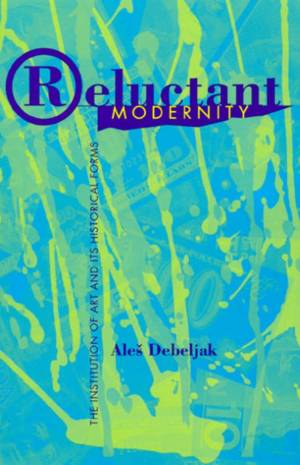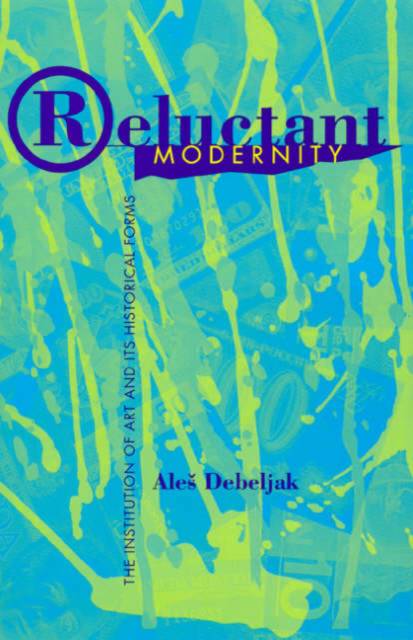
- Retrait gratuit dans votre magasin Club
- 7.000.000 titres dans notre catalogue
- Payer en toute sécurité
- Toujours un magasin près de chez vous
- Retrait gratuit dans votre magasin Club
- 7.000.0000 titres dans notre catalogue
- Payer en toute sécurité
- Toujours un magasin près de chez vous
138,45 €
+ 276 points
Format
Description
In this book, Ales Debeljak offers a refreshing alternative to postmodernists such as Baudrillard, who declare the death of art conceived as yet another source of rootless, circulating fictions. Inspired by the melancholy critical theory of Adorno and Benjamin, and drawing on Weber, Debeljak shows that with the dawning of modernity, art was made autonomous. Art production was effectively emancipated from the exigencies of everyday life and its guiding ideal of purposive rationality. The Renaissance brought on the first stage in a long, gradual withdrawal of art from the hitherto dominant mythological, religious, and aristocratic legitimization. Yet it was not until the 18th century that art assumed the separate status of a commodity to be bought and sold. However, art paid a price for its autonomy; through commodification art production ultimately become an extension of capitalist logic and control. The deterioration of bourgeois liberal individualism into the narcissism of mass society accompanied the decomposition of art into simplified mass art and commercialized kitsch. Maintaining its formal autonomy (museums, galleries, etc.), its content became the universal object of indirect corporate exploitation. Today postmodern art, argues Debeljak, is subjected to infinite reproducibility, total integration into mass society, and political resignation--no longer representing an alternative reality. The postmodern institution of art thus cannot be simply cured of modern structures and assumptions, but is, instead, fated to a continuous and painful relationship with modernity.
Spécifications
Parties prenantes
- Auteur(s) :
- Editeur:
Contenu
- Nombre de pages :
- 240
- Langue:
- Anglais
- Collection :
Caractéristiques
- EAN:
- 9780847685820
- Date de parution :
- 02-07-98
- Format:
- Livre relié
- Format numérique:
- Genaaid
- Dimensions :
- 150 mm x 233 mm
- Poids :
- 480 g

Les avis
Nous publions uniquement les avis qui respectent les conditions requises. Consultez nos conditions pour les avis.






